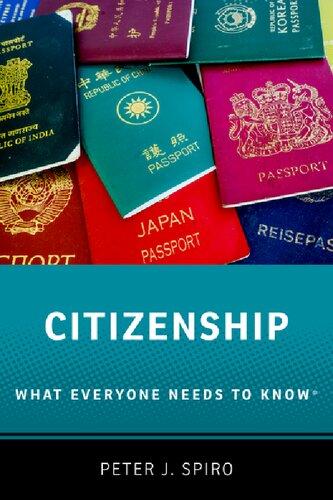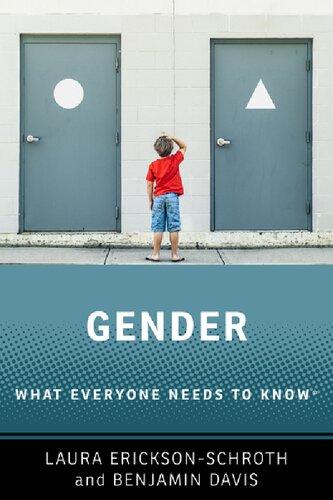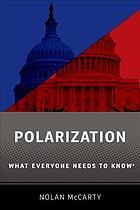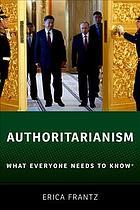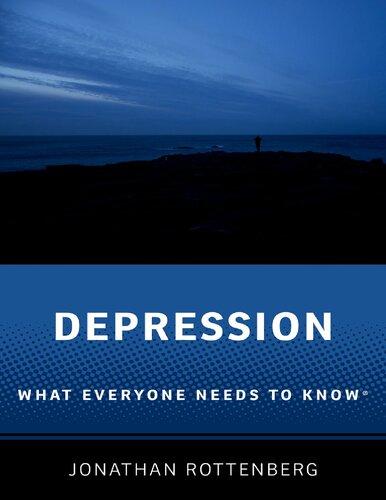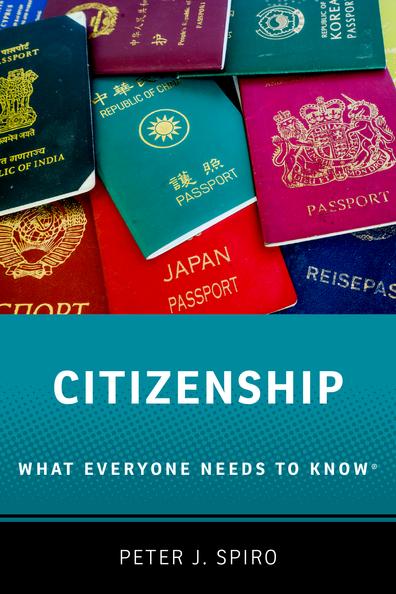Citizenship: What Everyone Needs to Know® 1st Edition Peter J. Spiro
Visit to download the full and correct content document: https://ebookmass.com/product/citizenship-what-everyone-needs-to-know-1st-editionpeter-j-spiro/
More products digital (pdf, epub, mobi) instant download maybe you interests ...
Jihad: What Everyone Needs to Know: What Everyone Needs to Know ® (What Everyone Needs To KnowRG) Asma Afsaruddin
https://ebookmass.com/product/jihad-what-everyone-needs-to-knowwhat-everyone-needs-to-know-what-everyone-needs-to-knowrg-asmaafsaruddin/
Gender: What Everyone Needs to Know® Erickson-Schroth
https://ebookmass.com/product/gender-what-everyone-needs-to-knowerickson-schroth/
Business Ethics: What Everyone Needs to Know 1st Edition J. S. Nelson
https://ebookmass.com/product/business-ethics-what-everyoneneeds-to-know-1st-edition-j-s-nelson/
Generative Artificial Intelligence: What Everyone Needs to Know ® (What Everyone Needs To KnowRG) 1st Edition Kaplan
https://ebookmass.com/product/generative-artificial-intelligencewhat-everyone-needs-to-know-what-everyone-needs-to-knowrg-1stedition-kaplan/
JIHAD - What everyone needs to know 1st Edition Asma Afsaruddin
https://ebookmass.com/product/jihad-what-everyone-needs-toknow-1st-edition-asma-afsaruddin/
Polarization what everyone needs to know Nolan Mccarty
https://ebookmass.com/product/polarization-what-everyone-needsto-know-nolan-mccarty/
Authoritarianism: What Everyone Needs To Know Erica Frantz
https://ebookmass.com/product/authoritarianism-what-everyoneneeds-to-know-erica-frantz/
Depression: What Everyone Needs to Know Jonathan Rottenberg
https://ebookmass.com/product/depression-what-everyone-needs-toknow-jonathan-rottenberg/
Environmental protection : what everyone needs to know 1st Edition Pamela Hill
https://ebookmass.com/product/environmental-protection-whateveryone-needs-to-know-1st-edition-pamela-hill/
CITIZENSHIP
WHAT EVERYONE NEEDS TO KNOW®
PETER J. SPIRO
Oxford University Press is a department of the University of Oxford. It furthers the University’s objective of excellence in research, scholarship, and education by publishing worldwide. Oxford is a registered trade mark of Oxford University Press in the UK and certain other countries.
“What Everyone Needs to Know” is a registered trademark of Oxford University Press.
Published in the United States of America by Oxford University Press 198 Madison Avenue, New York, NY 10016, United States of America.
© Oxford University Press 2020
All rights reserved. No part of this publication may be reproduced, stored in a retrieval system, or transmitted, in any form or by any means, without the prior permission in writing of Oxford University Press, or as expressly permitted by law, by license, or under terms agreed with the appropriate reproduction rights organization. Inquiries concerning reproduction outside the scope of the above should be sent to the Rights Department, Oxford University Press, at the address above.
You must not circulate this work in any other form and you must impose this same condition on any acquirer.
CIP data is on file at the Library of Congress
ISBN 978–0–19–091729–6 (pbk.)
ISBN 978–0–19–091730–2 (hbk.)
Paperback printed by LSC Communications, United States of America
Hardback printed by Bridgeport National Bindery, Inc., United States of America
To the memory of my father, Herbert J. Spiro, and grandfather, Howard C. Petersen. Citizens both.
Interrogating Citizenship and Its Alternatives
INTRODUCTION
Citizenship is a like the air we breathe; it’s all around us but often goes unnoticed. That is not a historically ordinary situation. Citizenship was once an exceptional status, a kind of aristocracy of the ancient world in which freedom and political voice were not taken for granted. Even as the nation-state emerged as the primary form of human association, citizenship remained an anomalous status, reserved for the few who were privileged as such in republican democracies. More recently, it has been the individual marker of membership in all national communities. It is generic; almost everyone has it, hence the ubiquity that has made it sometimes unseen. Most people never change the citizenship that they are unthinkingly born into; they have no cause to consider it any more critically than their choice of parents. Insofar as citizenship during the twentieth century came to be aligned with national community on the ground and in the public imagination, there was even less reason to look at it searchingly.
To the extent that it took residence in the public consciousness, “citizenship” came to represent an anodyne synonym for virtuousness in society and in individuals. It became the form of political address, a way of describing any public audience. Citizenship is something that everyone could agree on. It has consensus status across political divides. Citizenship telegraphs the shared equality among individuals
Citizenship. Peter J. Spiro, Oxford University Press (2020). © Oxford University Press. 10.1093/actrade/9780190917302.001.0001
in contemporary society, a status that anchors rights and individual dignity, something that frames the individual’s place in the community. In the public imagination, citizenship has been considered an unalloyed good.
But citizenship is ripe for closer examination. Globalization, increased mobility, and growing anti-immigration politics highlight the fact that although most people in the world have citizenship someplace, there are vastly unequal entitlements attached to citizenship in particular countries. The universalized sense in which the word is used in political discourse in the United States masks the obvious fact that not everyone has US citizenship and that most of the world is excluded from it. To the extent an implication of equality holds fast within the citizenry, it clearly does not apply to those outside the fold. In more sedentary, state-oriented times, it was easy to blinder out those who were excluded from the citizenry because their citizenship was held in other, distinct communities largely out of view. Those communities were different enough that one could keep them at arm’s length, a part of the natural order of things. The result has been a global kind of separate but equal.
That mindset is more difficult to sustain as national identities blur and distances are eclipsed. Citizenship still has its virtues. But as it more obviously marks the boundary of human community, citizenship is a tool of exclusion as well as inclusion. Citizenship has been a badge of equality. It may be turning into a badge of privilege. As citizenship is increasingly situated in a global context in which some have a “good” one and some do not, it is important to explore its meanings and mechanics.
This book addresses citizenship not as an institution to be venerated but as one that is contingent and constructed as a marker of membership in a state-based association. The book lays out the status fundamentals of citizenship: how one gets it, at birth and afterward through naturalization; how one loses it; what it gets you and what it demands of you by way of
rights and obligations; how the once-reviled status of dual citizenship became broadly accepted; and how local and global citizenships along with nonstate memberships may complement or even displace national citizenship. This material is not offered as a practical guide, but rather as a lens on the past and future of citizenship and ultimately on the state itself. For example, territorial birthright citizenship is contested in the United States in the context of undocumented immigration, but the debate rarely stops to ask why location at moment of birth should determine one’s citizenship and what that says about the demarcation of the national community. How can we justify making equality contingent on passing a test, as we do with naturalization applicants? What does the fact that some countries sell citizenship say about it as an institution? How has citizenship become cheap in the sense of requiring no distinctive obligations? How does dual citizenship undermine citizenship solidarities? In what circumstances should states be able to strip individuals of citizenship against their will? What are the implications of citizenries that no longer reflect social solidarities on the ground? These are the kinds of questions that start with the legal parameters of citizenship and lead to explorations of citizenship’s broader significance in global society.
Citizenship has been a central organizing principle of modern global society and a primary dimension of individual identity. It may stay that way, but its ascendancy is being tested. As with any new challenge to an established institution, it is important to have some understanding of the backstory and how that backstory has shaped the current landscape. I hope this book will help orient critical thinking on a subject by those (most of us) who have not really thought about it at all.
A word on terminology and coverage: Today, “citizenship” and “nationality” are almost entirely synonymous. As a universal descriptor, however, “citizenship” is relatively new, accompanying the rise of constitutional democracy. Although not all countries are democratic, all countries now denominate
their members as citizens. In the past, however, citizenship was a distinctive feature of democracy. Individuals belonging to other sovereignties were often called “subjects” for domestic purposes. As a matter of international law, “nationality” has historically been the term of art. For purposes of this book, then, historical discussions use “nationality,” especially when describing developments beyond the United States (where “citizen” has been used from its founding).
The book also uses immigration-related terms that are necessarily incidental to citizenship status. “Permanent residence” indicates the status under which individuals are admitted to a country with no temporal limitations, a status available in almost all countries but which is extended under various labels. (In the United States, it is colloquially known as “green card” status after the color of the card that once evidenced the status.) “Non-immigrants” are those who are legally admitted but with limitations on activity (employment for instance), and usually also time. I use “unauthorized immigrant” to describe those who are present in the territory of a state in violation of immigration controls. Citizenship implicates full membership in a national community; it is distinct from immigration, which is about the regulation of entry into territory. But because access to territory comes with citizenship, and because immigration is often a predicate to citizenship, the two are inevitably coupled in some respects.
This book is about citizenship as a global institution and includes material from all global regions. It is more focused on citizenship practices in the Global North, to the extent that citizenship is largely an artifact of the West. That is certainly true as a historical matter. Nationality was once a matter deeply contested between European sovereigns and the United States in particular, and so the historical background, important to understanding citizenship’s trajectory, is the history of nationality in those countries. Today, citizenship in developed economies remains more highly prized, precisely because of
global inequalities, which translates into a focus on citizenship practices in those countries. There have nonetheless been interesting and consequential developments in citizenship practices among states of the Global South, which are also recounted in the pages that follow.
1 CITIZENSHIP THROUGH BIRTH
Why do states give anyone citizenship at birth?
As in all forms of human association, states are composed of individual members. In theory, states could delay the conferral of citizenship until individuals reach adulthood and the fully formed identity that comes with it. In practice, all states provide for citizenship at birth, and that is how the vast majority of the world’s inhabitants acquire citizenship. From the state’s perspective, birth citizenship is a practical necessity and an easy mechanism for replicating membership on an intergenerational basis.
There are two primary forms of birth citizenship: on the basis of place of birth and on the basis of parentage. Historically, these two forms of birth citizenship have been known as jus soli, which translates from Latin as “right of the soil,” and jus sanguinis, or “right of the blood.” The first is based on territorial location at time of birth, the second on parentage and ancestry. In some contexts, as discussed later in this chapter, they act in combination. Both imply a logic under which birth parameters predict a life trajectory. Birth citizenship is best justified on the grounds that circumstances surrounding birth— location, parentage, or both—point to subsequent membership in the national community.
10.1093/actrade/9780190917302.001.0001
Does being born in a country’s territory entitle one to citizenship in that country?
In many countries, birth within national boundaries can lead to a grant of citizenship. In some, birth in a country’s territory will automatically result in citizenship. The United States most famously practices this near-absolute form of birth citizenship. With the minor exception of the children born to diplomats, all persons born on US territory are US citizens at birth. This approach is common among Western Hemisphere states, including Canada, Mexico, and most Latin American countries. Other countries have adopted modified jus soli birth citizenship mechanisms. Some states make automatic territorial birth citizenship contingent on parental immigration status. Children born on national territory to parents who are citizens will always have citizenship in that country. The United Kingdom, for example, extends citizenship to those born on UK soil to a permanent resident parent. Germany grants citizenship to individuals born on German territory if their noncitizen immigrant parents have resided in Germany for at least eight years prior to the birth of the child. Some European states, for example, Belgium, France, the Netherlands, and Portugal, restrict territorial birth citizenship to the children of parents who themselves were born on state territory. This is known as “double jus soli.”
Some states will in certain cases require a combination of birth and subsequent residence on the part of the individual claiming citizenship. In the United Kingdom, a child born to temporary or unauthorized immigrant parents will not have automatic citizenship at birth. However, if that child remains habitually resident in the United Kingdom from birth until her tenth birthday, she is entitled to citizenship at that time. In Germany, eight years of noncitizen parental residence is a necessary but not sufficient condition for jus soli; on top of this the child must reside in Germany for eight years before she turns twenty-one, failing which birth citizenship will expire.
The global trend is to allow birth citizenship based on place of birth in at least some circumstances. Most states, for instance, extend citizenship at birth to those born on state territory of unknown parentage (so-called foundlings), to reduce the incidence of statelessness. More important, an increasing number of countries now recognize at least double jus soli birth citizenship; in other words, more states now confer citizenship on intergenerational immigrants than was historically the case. But many countries continue to reject jus soli citizenship in all cases except when statelessness would result, including Austria, Finland, Indonesia, Egypt, Botswana, Kenya, and most Middle Eastern states. Some even fail to extend citizenship when statelessness will be the consequence, as is the case in India, Thailand, Nigeria, and Zambia. In these countries it is possible to have noncitizenship status persist on an indefinite, intergenerational basis. For example, a person born in one of these countries to parents and grandparents who were also born in that country but lack citizenship will not have citizenship at birth. Even when it doesn’t increase the risk of statelessness, this older model poses human rights concerns, to the extent that lack of citizenship results in status inequality. For example, without territorial birth citizenship a fourthgeneration legal resident would still lack full political rights.
What are the origins of territorial birthright citizenship?
Absolute territorial birthright citizenship has its roots in the feudal era. Under medieval conceptions of natural order, individuals were born into the protection of sovereigns, to whom they owed perpetual allegiance in return. Automatically and for life, they were subjects of the sovereign in whose territory they were born. The principle was notably articulated in the 1608 decision by the English Court of the King’s Bench in Calvin’s Case, which considered whether a person born in Scotland after James I’s ascension to the English crown qualified as an English subject. As recounted by Sir Edward Coke,
one of fourteen judges sitting on the case, “Every one born within the dominions of the King of England . . . is subject to all the duties and entitled to all the rights and liberties of an Englishman.” It was by virtue of this common law interpretation (there was no statute governing the issue) that persons born in the American colonies were considered British subjects.
How does territorial birth citizenship relate to the Dred Scott decision?
The US Supreme Court’s 1857 decision in the Dred Scott case addressed the question of whether free blacks were capable of holding US citizenship. At the time of its adoption in 1789, the US Constitution failed to address birth citizenship. Through the common law practice inherited from the United Kingdom, white persons born on US territory were assumed to have US citizenship at birth. In Dred Scott, the Supreme Court ruled that persons of African descent could not hold national citizenship even if they were free. (The heart of the dispute was whether a slave owner’s move to a non-slave territory had resulted in Scott’s emancipation, but the Court had to consider the citizenship issue since only citizens could invoke the Court’s jurisdiction.)
The Court turgidly and illogically argued that various disabilities suffered by blacks evidenced that the Constitution’s drafters could not have contemplated African American citizenship. The decision was better explained by the constitutional mechanics of citizenship, under which each state would have to respect the “privileges and immunities” of US citizens present in other states. If free blacks could hold citizenship, they would be entitled to travel freely in slaveholding states, a prospect in which slaveholding interests saw an intolerable threat. That explains why the question of black citizenship had been left open in the Constitution itself; abolitionist interests would have rejected a bar on blacks holding citizenship, while the slaveholding states would never have accepted black
citizenship. Dred Scott forced the question and accelerated the road to civil war.
In 1868 the Constitution was amended to resolve the issue of black citizenship definitively. The Fourteenth Amendment provides that “all persons born in the United States, and subject to the jurisdiction thereof, are citizens of the United States and of the State wherein they reside.”
Do all persons born in US territory enjoy US citizenship under the Fourteenth Amendment?
While the Fourteenth Amendment extended birth citizenship to blacks born in US states, its application to other groups was unclear. In its 1884 decision in Elk v. Wilkins, the Supreme Court found that Native Americans born into tribal membership were not “subject to the jurisdiction” of the United States and thus ineligible for citizenship at birth. Native Americans were extended birth citizenship by statute under the Indian Citizenship Act of 1924, which remains in effect today.
The Fourteenth Amendment’s coverage was also contested with respect to the children of noncitizens born in the United States. In its 1898 decision in Wong Kim Ark, the Supreme Court considered the citizenship of a person born in San Francisco to legal immigrants from China. The immigrant parents were themselves barred from citizenship under then-applicable laws disqualifying Asians from naturalization. Nonetheless, the Court found the children of such immigrants entitled to birth citizenship under the Fourteenth Amendment. The Court concluded that the Fourteenth Amendment codified the jus soli birth citizenship rule inherited from British rule and the common law. The Court did not act out of any concern for the children of Chinese immigrants. Rather, the Court understood that birthright citizenship was key to the American experience. “To hold that the Fourteenth Amendment of the Constitution excludes from citizenship the children, born in the United States, of citizens or subjects of other countries,” the
Court observed, “would be to deny citizenship to thousands of persons of English, Scotch, Irish, German, or other European parentage who have always been considered and treated as citizens of the United States.” The Wong Kim Ark decision established an expansive rule of territorial birth citizenship in the United States.
What are the arguments for and against birthright citizenship for unauthorized immigrants?
As a matter of long-standing administrative practice and consistent with Wong Kim Ark , US citizenship has been extended to children born in the United States to unauthorized immigrant parents. In 2014 an estimated 275,000 children, or 7 percent of all births in the United States, had at least one unauthorized immigrant parent. The practice has long been politically contested. It is the most notable context in which anti-immigration constituencies have targeted a citizenship rule.
In their 1985 book Citizenship Without Consent, respected scholars Peter Schuck and Rogers Smith challenged the constitutional assumption that the Fourteenth Amendment mandates birth citizenship for the children of unauthorized immigrants. The authors highlighted the constitutional purpose of the American founders to abandon the ascriptive practice of feudal England in favor of a consent-based system of political membership. Since unauthorized immigrants by definition lack consent for their presence, their children should not enjoy any citizenship entitlement. Schuck and Smith also argued that the Fourteenth Amendment could not have covered birth citizenship for the children of unauthorized immigrants given the absence of federal immigration controls at the time of its adoption; there were no unauthorized immigrants at that time. Finally, the book highlighted the additional incentive that birth citizenship creates for unauthorized immigration. Would-be mothers who understand that a child born in the United States
will automatically have birth citizenship, they argued, will have all the more reason to enter illegally.
There are strong arguments in favor of the established practice. The existing rule has the advantage of administrative convenience; one need produce only a birth certificate to establish a claim to birth citizenship. Under any other rule, individuals would also need to demonstrate the lawful status of a parent at the time of birth, which would often involve intricate legal and documentary inquiries. There would be other difficulties. For example, would children with one citizen parent and one undocumented parent have citizenship at birth? An estimated four million children fit that description as of 2019. For a US immigration bureaucracy that is already taxed by complex immigration rules, additional responsibilities respecting birth citizenship determinations would inevitably lead to administrative error and resource costs.
Limiting birth citizenship to the children of citizens and lawful immigrants creates the possibility of intergenerational caste. If children born to unauthorized immigrants remain for life in the United States, the denial of citizenship creates a mismatch between citizenship allocations and social membership on the ground. This is why the so-called Dreamers have such a powerful claim to citizenship; having entered the United States illegally at an early age, they are as a matter of social fact American in all but name. Denying birth citizenship to the native-born children of unauthorized immigrants would relegate them to a lifetime of legally second-class status. Even if they were extended some form of permanent residence (as Schuck and Smith suggested), they would lack full political equality. (Britain has experienced a similar phenomenon with the so-called Windrush generation, a population of individuals who legally migrated to the United Kingdom from British colonies between 1948 and 1973 but who in many cases lack documentation to establish a claim to citizenship.)
The Supreme Court has never directly ruled that the children of unauthorized immigrants are constitutionally entitled
to citizenship at birth, thus leaving the door open to contrary arguments. Perennial efforts to roll back territorial birth citizenship by statute or through a constitutional amendment have gained little traction, failing to pass even initial procedural hurdles at the committee level in Congress.
Candidate Donald Trump deplored birth citizenship as “the biggest magnet for illegal immigration.” As president he has since suggested that he could eliminate birth citizenship for the children of unauthorized immigrants by issuing an executive order, without congressional approval. This would circumvent the political impossibility of adopting a constitutional amendment and the political implausibility of passing an applicable statute. The suggestion has provoked strong pushback, including from some conservative writers. Near-absolute territorial birth citizenship is likely to remain US practice into the future. Does the history of the Fourteenth Amendment support the extension of citizenship to the children of unauthorized immigrants?
The history of the adoption of the Fourteenth Amendment in 1868 is necessarily ambiguous on the question of unauthorized immigrants, insofar as the category did not exist at a time when there were no federal immigration controls—in other words, at a time when there was no such thing as an undocumented immigrant. Some conservatives have argued that as a matter of original intent and consistent with the requirement that citizenship be extended only to those “subject to the jurisdiction” of the United States, the authors of the Fourteenth Amendment would have considered undocumented immigrants beyond the scope of the citizenship clause.
But the historical evidence more likely supports an expansive interpretation. During the floor debates, one legislator inquired of Senator Lyman Trumbull, chairman of the Senate Judiciary Committee and the chief drafter of the amendment,
whether the children of Chinese immigrants and “Gypsies” would receive citizenship under the provision. “Undoubtedly,” Trumbull replied. Chinese immigrants were barred from naturalization and thus remained subjects of the Chinese emperor, and (as Garrett Epps has shown) the Gypsies were thought to live outside the law in a way resembling today’s undocumented immigrants. As highlighted by other colloquies, legislative sponsors of the amendment included the “subject to the jurisdiction thereof” language to carve out the children of foreign diplomats and (far more important) those born into Native American tribes. To the extent the historical record fails to supply a definitive answer, the consistent superseding practice of extending citizenship to all others born on US territory should in any case suffice to overcome any ambiguity in the language and intent of the Fourteenth Amendment in favor of reading it to extend to the children of undocumented immigrants.
Do people born in US territories have citizenship at birth?
Persons born in territories on a path to statehood have always been considered US citizens at birth. Thus, someone born in Arizona before it became a state in 1912 had citizenship at birth. But US territories not on a path to statehood (so-called unincorporated territories) were deemed not to count as the “United States” for purposes of the Fourteenth Amendment. This notion followed the constitutional logic of a series of early twentieth-century decisions known as the Insular Cases. Thus, persons born in the Philippines during the period of US sovereign control there did not hold US citizenship. But as for members of Native American tribes, this non-application of the Fourteenth Amendment has been corrected through statutory enactments. Persons born in Puerto Rico, Guam, and the US Virgin Islands have long enjoyed citizenship at birth under these laws.
Even though persons born in US territories have citizenship by statute rather than through the Constitution, as individuals they enjoy all citizenship rights. Persons born in Puerto Rico, for example, can move anywhere in the United States. If resident in one of the fifty states, they are entitled to vote just as are other citizens. As discussed in chapter 3, they may be constitutionally disadvantaged so long as they remain resident in Puerto Rico, but that is also true of any citizen born in one of the fifty states who subsequently relocates to Puerto Rico or another US territory.
American Samoa remains the only US sovereign territory not covered by either the Constitution or a statute for birth citizenship purposes. Persons born in American Samoa carry the anomalous status of “noncitizen national,” under which they are entitled to a US passport and international protection but do not enjoy full rights of citizenship. As noncitizen nationals, they are entitled to relocate elsewhere in US territory, but they are denied the vote and are ineligible for some public benefits and public-sector employment. In 2015 a federal appeals court rejected an American Samoan’s claim that the Fourteenth Amendment extends to those born in the territory. The refusal to extend citizenship to those born in American Samoa stands as the last surviving example of what was once standard practice among colonial powers.
What are “anchor babies”?
Immigration restrictionists deplore so-called anchor babies as part of their attack on expansive birth citizenship practice in the United States. They argue that noncitizen mothers enter the United States illegally to give birth not simply to secure citizenship for the child, but also to secure legal status for themselves. Because the child has citizenship, the argument runs, the child can then turn around and petition for the legal admission of her parent.
